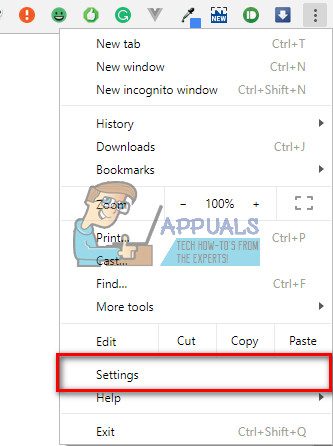How to Get Rid of Facebook Notifications on Google Chrome
Social networks like Facebook demand your constant attention. They usually offer you to receive notifications on the desktop browser you use. But, getting all these social notifications during work can be annoying and distracting. Many users complain that they unconsciously have activated this feature and now they can’t turn it off. And, here is what said one Macbook user.
“In an iMessage, a friend sent me a link to a Facebook page. I was on my macbook air. This was a mobile Facebook page link. I clicked it, not realizing. It opened into a browser in google chrome, and something popped up asking me if I wanted notifications. I clicked yes, just wanting the pop-up to go away (… bad choice.)
Now, I get Facebook notifications popping up on my desktop in the right hand corner all the time.
HOWEVER, in my system preferences > internet accounts, I am not signed in on Facebook, and never have been.
In my system preferences > notifications, a Facebook icon does not exist. I never have had it there.
Yet the pop-ups keep coming up. I have not found a solution on how to get rid of these yet. Someone, please help!”
If you are experiencing a similar scenario, and want to get rid of Facebook notifications on Chrome for desktop, here you can find the solution.
Block Notifications from Facebook on Chrome
By default, Chrome alerts you whenever an app, website, or extension wants to send you notifications. So, if you recently noticed alerts popping up whenever you receive a Facebook notification this feature is definitely ON. However, you can easily turn Chrome Notifications OFF anytime. Just follow the steps below.
- First, launch Google Chrome and click the menu icon in the upper right corner of the browser window.
- Select Settings from the drop–down menu.

- Now, scroll down to find Show advanced settings.
- Under the Privacy and Security section, look for Content settings and click on it.

- Scroll down to the Notification section and click on it.

- Here you see toggle Ask before sending. This toggle is on by default, and it will ask you if you want to receive notifications from any site.
Disable the toggle, and you will not receive any notifications, including the ones from

For those of you who want to disable only Facebook notifications, you can do that as well.
- While in Notification section, make sure the Ask before sending toggle is
- Now, search for the Facebook.com in the Allow section.
- Click on the 3-dot icon and choose Block. Now you will receive all your notifications except the ones from Facebook.

You can use the same procedure for disabling notification from any site you want and leave on only the ones that are most important for you.
Block Desktop Notifications on Facebook Website
If for any reason you don’t want to change Google Chrome settings, you can disable Facebook notifications from the Facebook Website. Here are the instructions.
- Log into your Facebook profile.
- Go to Settings and click on Notifications in the left panel.
- Now click on Desktop and Mobile and take a look in the Desktop section.
- If you see the text “Notifications are enabled on this device” next to the Chrome icon, click on Turn off. This will disable Facebook notifications in your Chrome browser.

Final Words
Well, that’s it. After you have successfully disabled them on your computer, facebook notifications won’t work unless you turn them back on. Both ways were functional for us in disabling Facebook notifications on our laptop. Try the one that you find more appropriate for you, and share your thoughts in the comment section below.